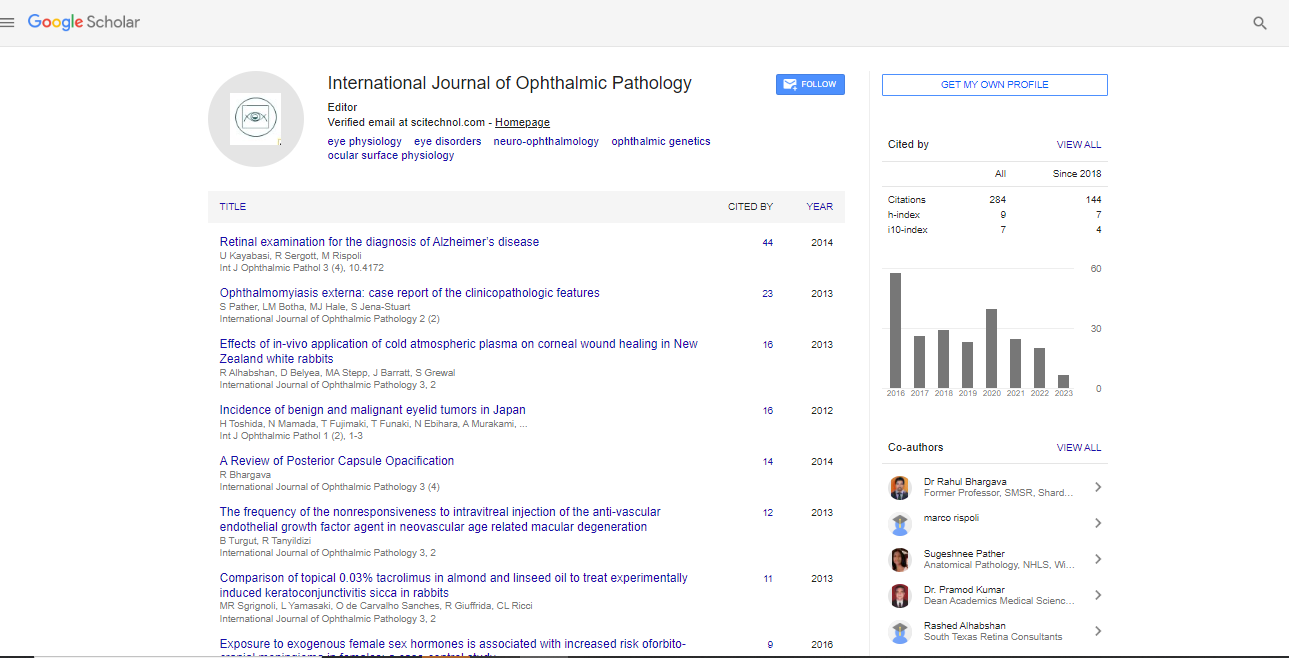Bilateral keratomalacia secondary to diet induced vitamin A deficiency in an Ethiopian young woman: A case report
Kumale Tolesa Daba
Jimma University, Ethiopia
: Int J Ophthalmic Pathol
Abstract
Diet induced vitamin A deficiency is less commonly seen in otherwise healthy adults, due to large store of vitamin A in the body. Night blindness is the commonest manifestation of vitamin A deficiency in adults, whereas keratomalacia is a rare manifestation. A 27 years old Ethiopian woman came to Jimma University Department of Ophthalmology with a compliant of protrusion of the globe content of both eyes within a week, after having redness and fear of light of both eyes for 2 months. She is a mother of twins and has low socioeconomic status. On general examination she is catechetic with enlarged parotid gland. On ocular examination she is bilaterally blind and has dry ocular surface. There was bilaterally melted cornea with prolapsed uveal tissue. After going through several investigations, she was diagnosed as bilateral keratomalacia (stage X3B) secondary to diet induced vitamin A deficiency. She was supplemented with vitamin A and other nutritional supplementation. Topical lubricating drops and ointments were administered. Finally conjunctival flap was done to preserve the globe. Although it is rare, treating physicians should be aware of the occurrence of keratomalacia in adults which is potentially blinding. Early recognition and treatment of vitamin A deficiency at the stage of night blindness is very essential in reducing blindness caused by keratomalacia.
Biography
Kumale Tolesa Daba has completed Doctor of Medicine degree from Jimma University, School of Medicine and Ophthalmology specialty. She is an Assistant Professor of Ophthalmology in Jimma University. She has published 4 papers in reputed journals and has 6 more pending publications. She has inclination towards Glaucoma and Pediatric Ophthalmology. She did a short term fellowship on Pediatric Ophthalmology and strabismus at Gachon University Gil Hospital, South Korea and Tilganga Institute of Ophthalmology, Nepal.
 Spanish
Spanish  Chinese
Chinese  Russian
Russian  German
German  French
French  Japanese
Japanese  Portuguese
Portuguese  Hindi
Hindi 